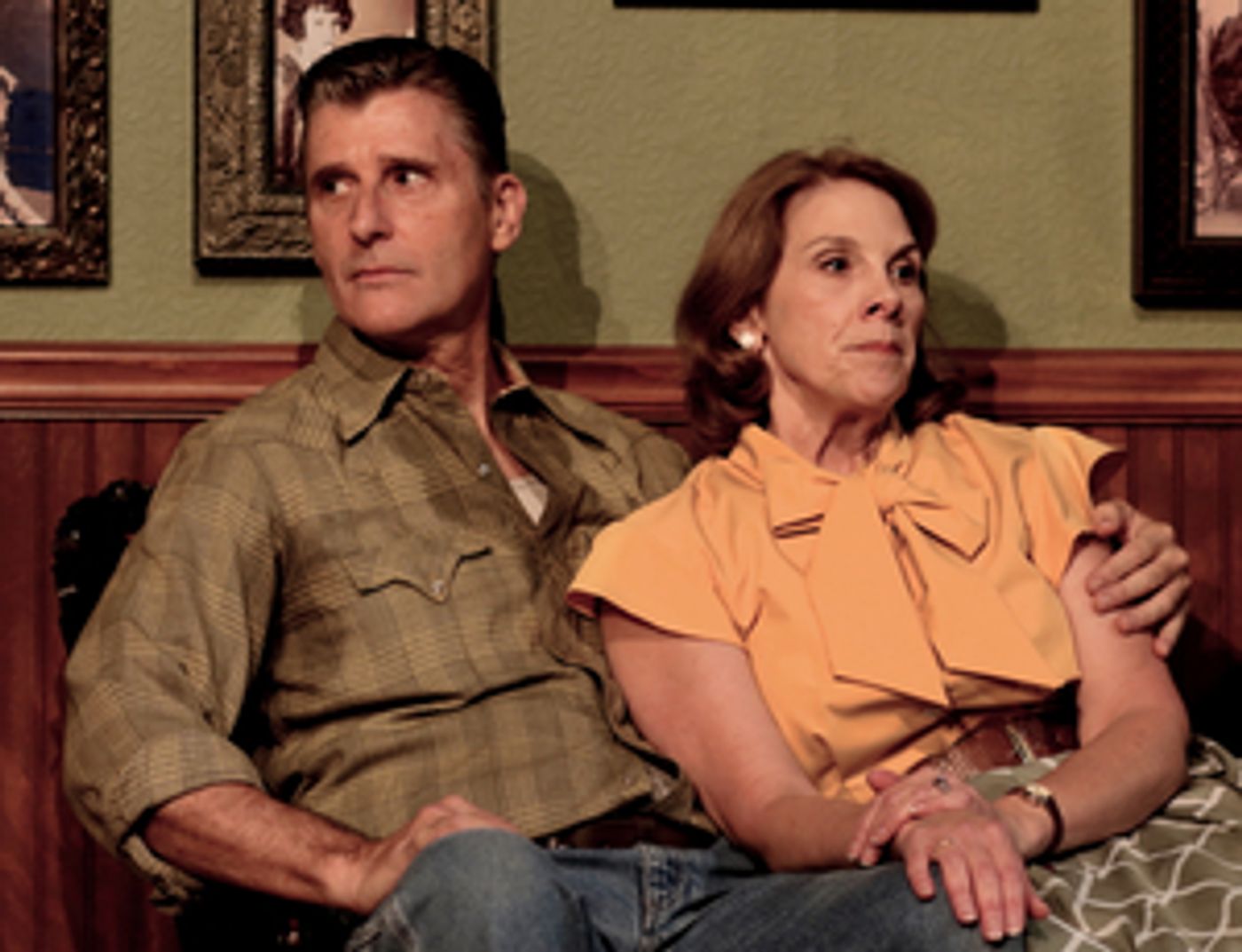Review: Quotidian Theatre Company's THE DAY EMILY MARRIED a Beautiful Swan Song
.

Bethesda's own Quotidian Theatre, which has been a true labor of love and art, after nearly 25 years on the D.C. theatre scene, is making an appropriately subtle, and grand, exit. Horton Foote's intensely psychological drama, The Day Emily Married, is a piece that Artistic Director Jack Sbarbori famously brought to life, staging its world premiere and making Quotidian's reputation at the same time. His relationship with Foote has been a hallmark of Quotidian's work, and it's easy to see why.
Together with co-Artistic Director Stephanie Mumford, Sbarbori has re-created the atmosphere of a once-grand town, Harrison, Texas, which by the 1950's has been reduced to a strip of gas stations and lazy storefronts, the Davis household-the play's setting-being the last home standing along its main drag. (Thanks to Clay Teunis' sound design, the occasional rush of a passing car can be distinctly heard here, a reminder of the home's, and the town's, increasing irrelevance). Foote's town of Harrison is a rich, rich vein of characters, each with their own intensely personal story, their own delusions, and their own flawed attempts at dealing with the changing world around them.
As Lyd "Belle" Davis, the family matriarch, Jane Squier Bruns gives us the ever-controlling mother, who uses her nostalgia as a weapon, deployed strategically against those closest to her. Bruns' Belle is the steel magnolia done up in lace-whether in faded weeds or a bold red dress (Mumford's costumes here are, as always, spot-on) which speaks to a strength she wields, even while she pretends not to.
As Belle's husband Lee, John Decker gives us the kind of southern gentleman whose methods of controlling his environment are equally subtle. Hard-working, and devoted to his wife, Lee's interference in his daughter Emily's life is at once appalling and understandable. The heartbreak that comes with his realization that he has failed her, precisely because he tried to help, is as wrenching a sight as I have ever seen.
The title role of Emily Davis is a profound challenge; the wallflower daughter of a 'Belle of the Ball,' Emily has to navigate between the impenetrable wall known as her parents and the outside world, which she has only managed to engage intermittently. Life with her new husband, Richard, comes with all the promise and challenge posed by a normal marriage; but as becomes clear, the marriage is far from normal, and her parents' interventions have dire consequences for Emily and Richard alike.
Roxanne Fournier Stone's Emily embodies all the aspirations and disappointments of a middle-aged woman, lacking the courage to stand on her own two feet and relying-tragically-on her parents for all the wrong things, for all the wrong reasons. The Emily that Ms. Stone gives us is complex, and rightly so - Foote writes brilliantly for the women in this play, and the mother-daughter relationship we see here cuts quite close to the bone; Foote knows family, and he knows how relationships like this can become toxic and inescapable at the same time.
As Richard, Emily's husband, Andrew Greenleaf gives us the Texas-sized ego we have come to expect from the Lone Star state. An oil-rig worker with dreams of striking it rich in the business, he uses the women in his life as a means to an end, but still seems to have a longing for a family life he never had growing up. Greenleaf's Richard is filled with ambition, and the delusions that come with it, and his every move and every word mask his frustration with the hand life has dealt him.
The supporting players here - Star Bobatoon as Addie, the Davis' housekeeper, Elizabeth Darby as Emily's cousin Alma, and Laura Russell as Maud Cleveland (her husband is a tenant farmer/sharecropper), each provide a contrasting sense of life outside the Davis household. Addie reminds us of the color line that still plagues us to this day, but Bobatoon reminds us that those who serve others have their own pride in what they do. Alma, all flash and hoop skirts, reminds us of the life Emily wishes she could have.
But it is Russell's Maud who reminds us, compellingly, of the struggles faced by sharecroppers during this period. It's forgotten that whites and blacks alike lived as tenant farmers, many of them in crushing poverty, drowning in debt and never more than a heartbeat away from financial ruin and homelessness. When Richard, as a part of his business schemes, puts pressure on Maud's husband to pay back a longstanding loan, it is Maud who puts a human face on debts which can never be repaid.
The Day Emily Married is unforgettable-as a play, for its indelibly-written characters, and as a Quotidian production, it is a beautiful swan song for one of the rare gems of the Washington Theatre scene.
Production Photo: Andrew Greenleaf (Richard) and Emily (Roxanne Fournier Stone). Photo by Steven LaRocque.
The Day Emily Married runs through August 29 at The Writer's Center, 4508 Walsh Street, Bethesda, Maryland. For tickets phone 1-800-838-3006, extension 1, or go to www.brownpapertickets.com.
Reader Reviews
Videos

